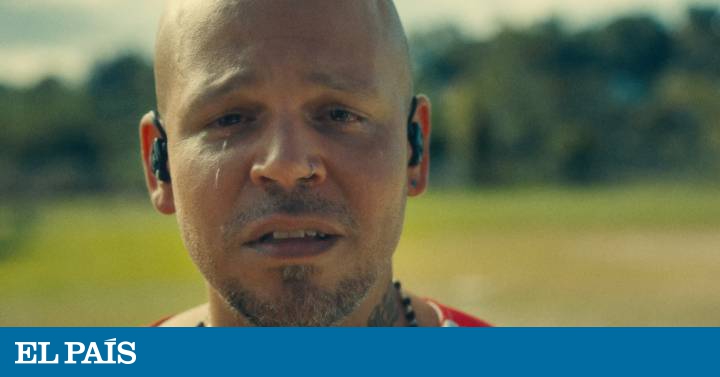Sometimes, looking back means reaching the root of everything. A painful journey, but also inspiring. René Pérez Joglar, artistically known as Residente, half of Calle 13, one of the biggest and most influential Latin bands of the last quarter of the century, has just starred in one of these trips through René, his new song, published this Friday.
René is, in the words of its author, "the most important song" of his life. More than a hyperbole of the Puerto Rican musician, it is a revealing statement: Residente has a good collection of important songs but in this case he indicates it because it sounds true. It is more: it is true. René is a monumental composition, perhaps already one of the greatest songs of his career, which seems to be just a few hours in the air as one of those compositions that span time and space. We will talk about it in the next few days. It will remain in the coming years.
Titled with the true name of its creator, the new song is in itself an absolute immersion in the life of Resident, who comes out in a powerful music video singing in the foreground on a baseball field. It is a confessional work that impacts by its honesty from the first verse, just after the female voice that asks René: "With what part of the body did the Taíno Indians play ball?"
"Since I was little I wanted to be a baseball player, I didn't arrive." It is the first thing the voice of the narrator says. A voice that more than singing or rapping what it does is open in the channel a soul, that of its protagonist, Resident, that of a man hiding behind a star. A man named René who has presented the song on his Twitter account: “One night I felt very bad, I was in Mexico, the stadium waiting for me, and I didn't want to leave the hotel. I called Mommy because she wanted to throw me off the balcony and I didn't know why. That night a friend arrived and stayed with me. The next day I started writing this topic. ”
Lyrically, René is as if Resident had thrown himself on the balcony and during the fall he saw his life go by. An existence marked by those things that are known and others that, instead, can be intuited but not known. His successes are known as a musician and his confrontations with the rulers of his country, Puerto Rico (“I ate the world of a bite / In Puerto Rico they fired employee, insulted the governor and was televised,” he sings), they know with some intuition - or knowledge of his career - others such as problems with alcohol ("I returned to drink alcohol in my office / I write very soberly, but I write better drunk") and others that are the true strength of the song are revealed.
The latter are those that correspond to the tribulations of his soul, to all that that is within the artist and that comes out as a torrent from the most remote past (“Fights with my stepfather when I lost control / I solved them with him seeing a baseball game / He invited me to fight a couple of times / I ran away from home a couple of times ”) to the present (“ In summer and Christmas / I want to clean the house with my brothers listening to Ruben Blades ”), even the future ("I don't care about tours, records, Grammy / And that on 11th Street / I want to see Halley's comet with mommy")
Life made music. Or the music, with that modern and simple string and piano base, beating with its own life. René is like Halley's comet, the only comet with the naked eye that perhaps appears twice in a human life. It is a song that does not appear many times in an artist's career, leaving a bright trail difficult to forget in the listeners. A trail that marks in the air the weight of universal sensations such as depression, anxiety, loneliness and failure. And one that plans on the whole song, like the comet: the search for oneself, summed up in its final verse. "I want to be me again."
Sometimes, looking back means reaching the root of everything. Beyond the official story. From our official story, the one we tell others at home, on the street and on social media. Look back until the time when "the Taíno Indians played ball," as the female voice says at the beginning of the song. The Taíno Indians were the first pre-Columbian inhabitants of the Bahamas, the Greater Antilles and the north of the Lesser Antilles, all that Caribbean area to which Puerto Rico belongs. Those first indigenous inhabitants who populated some islands that were later dominated by the conquerors, who imposed their laws and changed the original appearance of a land bathed by the sun and rhythm. It is the land of Resident, a beautiful place in percussions like the ones that René closes. Today, the conquerors do not arrive in skulls, but they are everywhere since one is born, but especially since he has the age to vote and find a place in the world with work and family.
"With what part of the body did the Taíno Indians play ball?" Looking back, that female voice is René's mother. The voice that sings the trick so that he does not forget it, although, sometimes, the child, like the adult René and the Resident superstar, forgets it. "Head, knee, thighs and hip." All these parts together make up the human being, the same that when traveling to its origins reveals the essence of his life, that first and true happiness, the true conquest that belongs to us and that we should not let anyone or anything take away from us.

